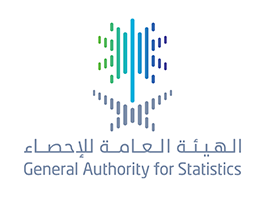Last update 10 / 01 / 2022
The Saudi 2022 census is an essential pillar of the Kingdom’s Vision 2030

The Saudi 2022 census is an essential pillar of the Kingdom’s Vision 2030
The General Authority for Statistics is preparing to launch the Saudi Census 2022, which will be the fifth in the history of the Kingdom. The last general census of population and housing in the Kingdom was conducted in 2010, and the population at that time was 27,136,977.
The past decade has witnessed rapid transformations related to technical developments, social and economic changes, living and consumption patterns, all of which had a major impact on the population, and should be evident in the upcoming census (Saudi Census 2022).
Most countries in the world conduct a comprehensive census of their population, housing and establishments every ten years with the aim of providing accurate detailed data about the population and its distribution according to their places of residence, their social and economic characteristics – such as the educational level and educational qualifications obtained – the economic status of individuals, the professions practiced by workers, the type of economic sector to which they belong, and the economic activity of the entities in which they work.
This accurate statistical data enables officials, planners and policy makers to develop a comprehensive strategy that keeps pace with the urban development and fulfils the future needs of any expected population increase. It also contributes to setting development plans and providing more public services to the population, such as health and education services, transportation services and others.
In preparation for the implementation of the general population and housing census 2022, the General Authority for Statistics carried out a pilot census, starting from September 2021. It covered seven cities around the Kingdom, including Tabuk, Al-Ula, Makkah Al-Mukarramah, Asir, Diriyah, Riyadh, and the Eastern Province. It was used to test the census form, and the working tools that will be used in the general census, such as self-enumeration, filling out the questionnaire form electronically and all other aspects related to its operational model. This data will then be used to draw lessons learned and evaluate the technical systems that will be applied in the 2022 census.
The pilot census included the numbering and enumeration of buildings, along with their components of housing units and households, in addition to counting the population and individuals in labor camps and public housing, and identifying their demographic, social and economic characteristics, in order to obtain accurate and timely results.
Alongside the availability of information and data through various digital information sources such as government agencies and smart device applications, the Saudi Census 2022 remains a fundamental pillar of the Kingdom’s Vision 2030, as it was designed to provide additional, complete and accurate statistical information on the Kingdom’s population, both citizens and residents, regardless of their identification papers or residency status.
In addition to the demographic distribution throughout the Kingdom, statistical outputs include the income and living standards of individuals, together with their educational status, as well as making data available to policy makers in order to direct future development projects and assist decision makers in taking decisions based on reliable information in order to contribute to achieving the goals of the vision, related to developing public services such as education, health, public transportation, urban planning and distributing budgets amongst projects and initiatives.
The General Authority for Statistics has prepared the Saudi Census 2022 plan and its implementation after a comprehensive study of the requirements of its beneficiaries from government agencies, and based on global best practices and standards for population census models used in G20 countries, as well as member countries of the Organisation for Economic Co-operation and Development (OECD). For the first time, modern technologies are being used in conducting the census operations, including the use of satellite imagery to ensure a more comprehensive coverage of the Kingdom’s regions, identifying unregistered dwellings at national addresses, and developing a data collection mechanism to include digital self-enumeration (which is a new method of collecting data through the authority’s publicly accessible portal) as well as updating the census form to assist decision makers, according to international best practices.
In addition, the General Authority for Statistics confirmed its full commitment to the highest levels of privacy, confidentiality and protection for the data of those included in the census, any personal information related to their identities, and undertook not to share it with or disclose it to any third party, by following detailed procedures to monitor the operations of disclosure and control of information and statistical data.
It should be noted that the General Authority for Statistics is the only official statistical reference for statistical data and information in the Kingdom. It implements all statistical work, in addition to technical supervision of the statistical sector, which includes an ecosystem of statistical centers and units established within the administrative structures of government agencies and a number of private sector institutions.
